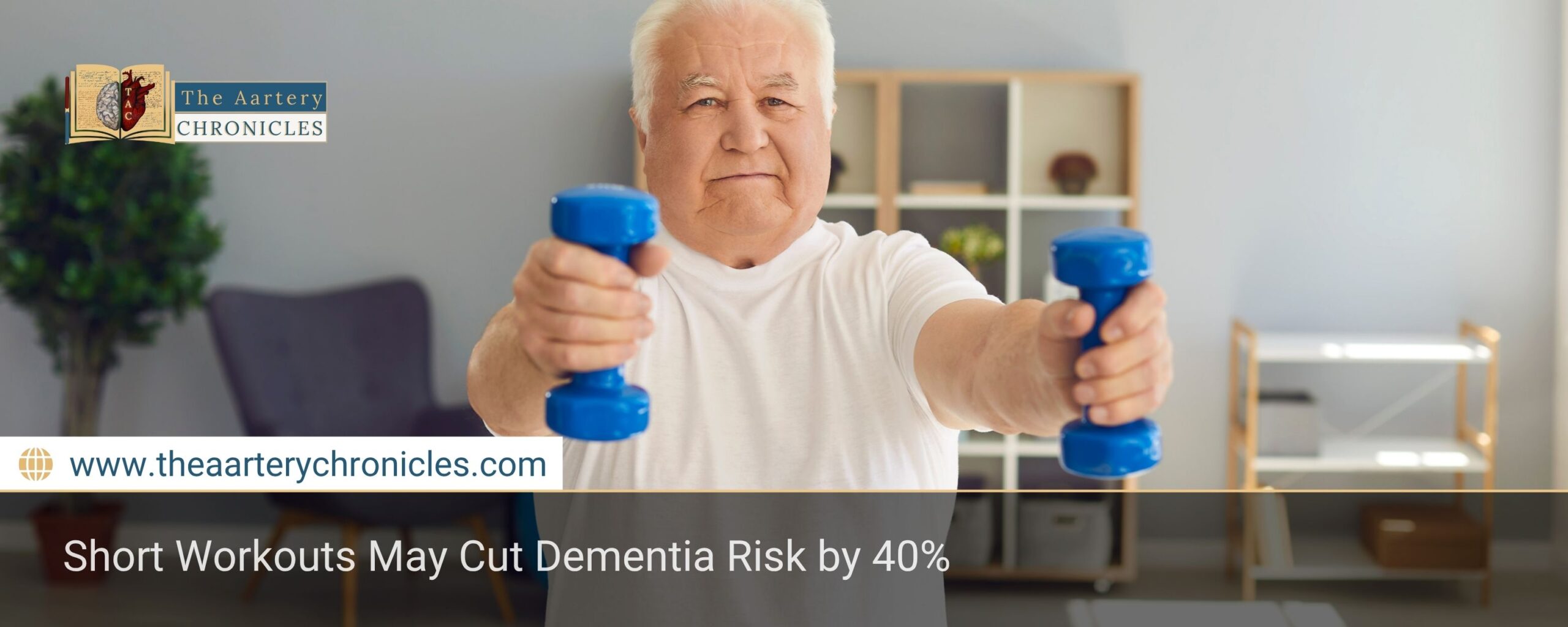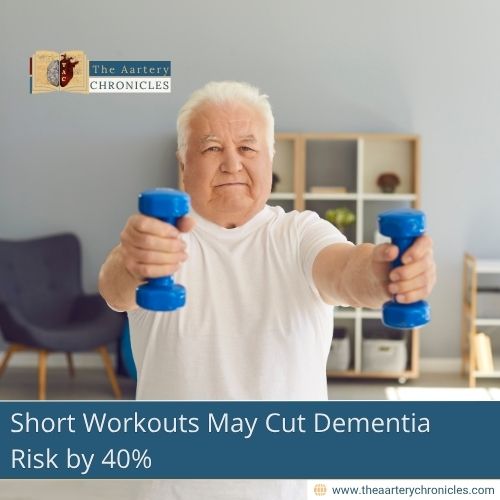

New Study Links Brief Exercise to Lower Dementia Risk
Summary: New research shows that even a few minutes of high-intensity physical activity can reduce your risk of dementia by up to 40%. This groundbreaking study reveals how exercise supports brain health by reducing inflammation, boosting blood flow, and protecting against cognitive decline, even if you start later in life.
Short Workouts, Sharper Minds
Could a few brisk minutes a day protect your brain for life?
A new study says yes, short bursts of physical activity may lower your risk of dementia by up to 40%.
A team of researchers from the Norwegian University of Science and Technology (NTNU), led by Ulrik Wisløff and Atefe R. Tari, along with scientists from Australia’s Queensland Brain Institute, explored how regular physical activity, even in small doses, can slow brain ageing and reduce dementia risk. Their findings, published in The Lancet, emphasise that exercise is just as essential for your brain as it is for your heart.
Just a Few Minutes Can Make a Big Difference
It turns out you don’t need to run marathons to improve your brain health.
“Even small amounts of physical activity may be enough to protect the aging brain,” said Tari, the lead author of the study.
Their analysis covered data from both human and animal studies and found that short bouts of high-intensity training, like a brisk walk where you’re too breathless to sing, can improve several brain-boosting processes:
- Enhances blood flow to the brain
- Reduces inflammation
- Strengthens immune function
- Increases brain plasticity
- Boosts the release of protective molecules
All of these functions naturally decline with age and contribute to neurodegenerative conditions like dementia.
Why Exercise Helps: The Science Behind the Sweat
As we age, our brains become more vulnerable to inflammation, poor circulation, and reduced plasticity, all of which increase the risk of dementia. This study shows that exercise can directly counter these effects, acting as a protective shield against cognitive decline.
“These are mechanisms that play an important role in the development of dementia and cognitive decline,” said Tari.
That’s why even a few minutes of intense movement can be so powerful, it sparks biological changes that support brain health at any age.
Microtraining: Big Gains from Small Sessions
Wisløff and Tari have been advocating microtraining, short, high-intensity workouts that can easily fit into daily routines. While current health guidelines recommend at least 150 minutes of moderate or 75 minutes of intense exercise weekly, they point out that most people (50–70%) don’t meet these goals.
Here’s the game-changer:
“Even small doses of high-intensity activity—like brisk walking—can reduce the risk of dementia by up to 40%,” says Wisløff.
That means if you’re short on time, you can still do your brain a big favor.
Time to Update Public Guidelines
The findings echo global sentiments. A recent Nature Medicine article also urged health authorities to revise physical activity recommendations to reflect the benefits of small but intense workouts.
“A little is better than nothing – and it’s never too late to start,” says Tari.
So even if you’re starting later in life, you’re not too late to make a difference.
Final Thoughts: Your Brain on Exercise
As life expectancy rises and dementia cases increase, prevention is more important than ever. The best part? You don’t need a gym membership or hours of free time. Just a few focused minutes each day could help safeguard your brain for the future.
“Exercise is cheap, accessible, and has no side effects. It should be considered a first-line measure to preserve brain health,” Tari emphasized.
Summary
- Just a few minutes of high-intensity exercise daily can cut dementia risk by up to 40%.
- It improves brain health by boosting blood flow, reducing inflammation, and releasing protective molecules.
- Microtraining is simple, effective, and doable at any age.
- Public health advice should reflect how even brief movement makes a big impact.

Dane
I am an MBBS graduate and a dedicated medical writer with a strong passion for deep research and psychology. I enjoy breaking down complex medical topics into engaging, easy-to-understand content, aiming to educate and inspire readers by exploring the fascinating connection between health, science, and the human mind.








